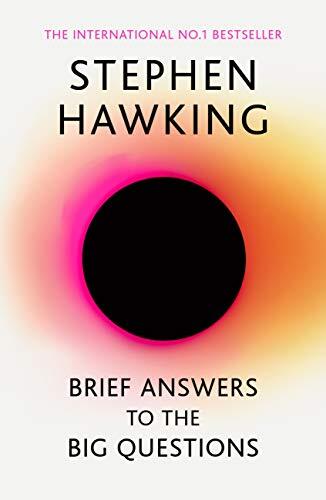You are viewing your 1 free article this month. Login to read more articles.
A brief history...
The Guardian said it well. "It was A Brief History of Time that rocketed [Stephen] Hawking to stardom." Diagnosed with motor neurone disease in 1963, Hawking did not let his illness hold him back. From black holes to quantum theory, his death this week leaves behind an unparalled body of work. Yet it was in the popularising of science through his first and still bestselling book (and the later follow-ups) that Hawking became the most recognisable scientist of his generation, and arguably the most influential. He, of all people, understood the importance of giving his ideas and explanations the form that the book allowed. The rest is history . . .
A Brief History of Time went on to surpass sales of 10 million copies, and sparked a wave of publishing that continues today. Its publication, by Transworld in 1988, pre-dates The British Book Awards (a.k.a. Nibbies) but A Brief History of Time is the archetypal winner: a book that creates and defines a genre, dominates the bestseller charts, begins a 30-year relationship with his publisher, and catapults its author to worldwide fame. That it was also said to be the most unread book in history only adds to the allure—the reading is only part of what can make a book great or indeed a bestseller shoot, sometimes it is not even the most important part. For those who don’t understand publishing, this can seem as inexplicable as Fermat’s Last Theorem, but it really isn’t. A book is more than the sum of its parts.
Not all great books win a Nibbie, of course. But many do. This week we unveil the shortlists for The British Book Awards 2018, with 147 books, publishers, retailers, agents, campaigns and individuals shortlisted with extensive coverage at the front of the magazine and a special shortlist supplement to follow next week. I am unapologetic about this. We don’t do enough to talk up this business, allowing others (as was seen in last week’s remarkable interview with Steven Hill, head of policy at the Higher Education Funding Council for England) to not only undervalue the sector, but also actively undermine it.
Books such as A Brief History of Time do not come around often, but when they do they do not emerge because of a "big bang", but because of individual efforts—to write, to edit, to design, to market, to print, to price, to sub, to distribute, to publicise, to sell. In his lecture "Does God play Dice?", Hawking asked a question many publishers also think about: can we predict the future? His conclusion: "The universe does not behave according to our preconceived ideas. It continues to surprise us." He could have been speaking of publishing. Hard work plus surprise are what makes this business tick.



















